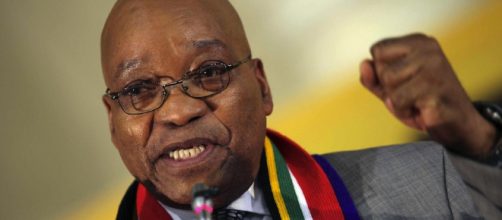Zimbabwe and South Africa share a similar history with the oppression of the whites in their various timelines but up until they both gained their independence only. Zimbabwe has had the unfortunate experience of being dominated by the rule of the now ex-President Robert Mugabe for almost four decades. Whilst the president of South Africa has changed over the years since the country gained independence from Afrikaner nationalism in 1994. South Africa has had the chance to breathe some fresh air unlike their neighbouring southern African country, Zimbabwe.
But that too was perhaps a fresh breath too soon.
Jacob Zuma’s South Africa
Jacob Zuma doesn’t have the dreadful past that follows Mugabe like a shadow. The former president of Zimbabwe came in as a liberator and left as someone beyond a dictatorship title. He left the country in ruin, governed stubbornly and brutally, as though he hadn’t realised there were consequences for his action against his country’s growth. Zimbabwe’s economy began to deteriorate drastically in the 2000s when Mugabe forced 4,000 white farmers to give up their land. This hit the once agriculturally golden farming sector enormously and its effects were soon realised immediately – almost overnight. It led to a famine, the worst of its kind the country had ever seen in 60 years and that was just the beginning.
In all Mugabe’s 37-year rule, inflammation rocketed, public services collapsed, the economy shrank by 18% in 2008 and the Zimbabwean currency was abandoned in 2009, leaving the country to operate in a multi-currency system including the use of the US Dollar.
South Africa’s story is a bit different. It’s history; the Apartheid left a mark that made sure that the country’s development and keeping a democracy was more than fundamental for the country to move on. The African National Congress (ANC) Party which set out to liberate South Africa from the oppression, had to think of changing to a leadership role by the early 1990s, suitable for governance. But that vision which once was for the party is now lost in today’s version of the ANC, the one with Jacob Zuma as president.
A change of leadership in South Africa is necessary
Jacob Zuma has been the president of South Africa since 2009. Even though not as lengthily as Mugabe, Zuma has managed to endure numerous scandals that have continuously questioned his credibility as a leader of South Africa. One of which, is said to be the most damning and damaging to his political career – in March 2016, South Africa’s High Court ruled that he violated the constitution by failing to repay the government for money used for upgrading his private residence, including building a cattle enclosure, amphitheatre, swimming pool, visitor centre and chicken run. He apologised and repaid back the money.
In addition, Zuma received heavy scrutiny and protests from students from low-income families in South Africa and university staff on the extreme inequality in university education between black students and white students.
#FeesMustFall became a social media campaign trying to get the President and the ANC to give all students the equal university education access that was once promised to them post-Apartheid. Since then more protests have followed from the opposition, including one on his 75th birthday earlier this year which called for his resignation because of scandals and the sacking of the former Finance Minister Pravin Gordhan, contributing to the growing disillusionment of the extent to which Zuma’s corrupted government.
Even his own party stand divided. Some remain supporters of him and others have made a conscious decision to redirect their energy into criticising his every action for which they are not wrong for doing so.
By August of this year, he had already survived eight votes of no-confidence in parliament as a result of his own party members trying to find ways of 'firing' him from his duties as president. However, critics and most importantly the members of the ANC that are now against him should move the microscope and look closely at the party that elected President Zuma as their party leader. A leader is the representation of his people, therefore if President Zuma is scandalous and no longer worthy of being the head of government, isn't the ANC party also unfit to remain in power?
ANC Party elections could mean a smooth transition from Zuma to the successor?
People are not happy with President Zuma and people are not happy with the ANC either.
With the upcoming party elections in December 2017, it is expected that Jacob Zuma will hand-over the party leadership to his successor; who could be Cyril Ramaphosa, Zuma’s current Vice-President. Then later, it is also expected that he leaves the Presidency for a successor to follow after the general election in 2019. It could be a peaceful and smooth running exit or it could be sooner for the President to leave both the party and the presidency.


